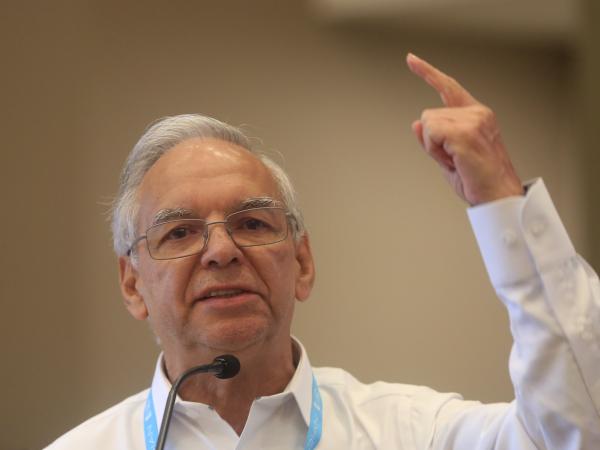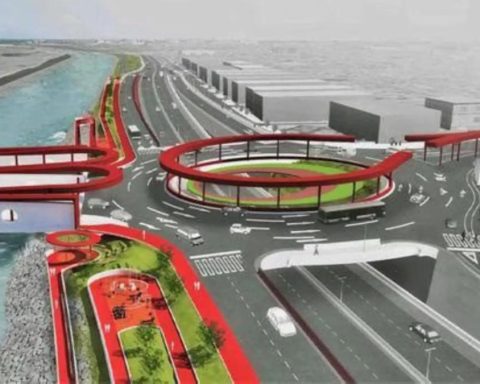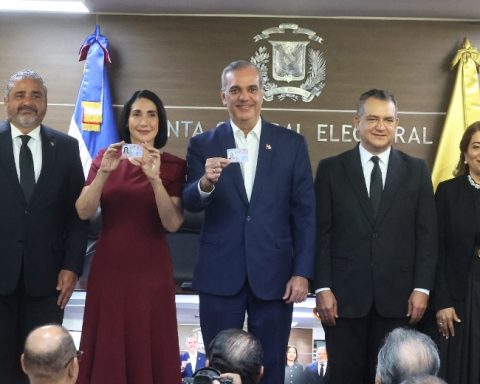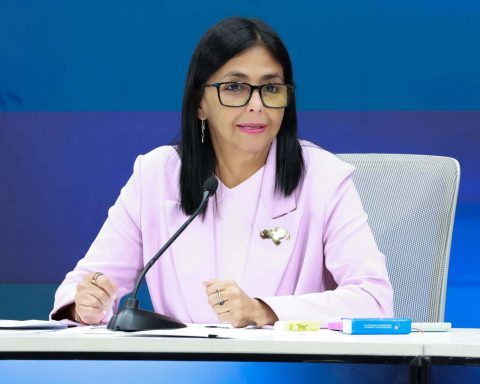This Friday -October 4th- the accountability of the management and achievements of the Ministry of Finance and Public Credit was carried out, where once again the Government reiterated that the economy is advancing according to what was projected and that although the squeeze of cash is maintained, towards the future the situation is improving and little by little The country is going to return to the path of competitiveness compared to its peers in the region.
The event was led by Minister Ricardo Bonilla, who stressed who expect inflation to close the year a little above 5% and that the annual variation of GDP will be around 2% in that same period and took the opportunity to highlight that one of their great achievements has been the control of public debt, which It remains at high levels, but little by little it is returning to pre-pandemic levels.
More news: Levels of the Chingaza system reservoirs do not reach 45%, with a cutoff on October 3
“The debt was an element that helped the reactivation, but favorable payment conditions were not established and very short-term payment elements were created, due to which we have had to lower the debt threshold. We ended 2023 at 53.8%, but this year we will end at 55% due to the real impact of what needs to be covered. Likewise, in 2023 $75 billion were paid and for this period $95 billion more must be paid, while by 2025 we will reach $112 billion,” Bonilla said.
Pullas to Congress
When it was believed that the acrimony between the Public Credit Commission and the Ministry of Finance had been overcome, after the friction between the congressmen and the management that manages the debt in the Government, Minister Bonilla González sent a harsh message to this group , to whom he asked not to continue delaying the processes for the acquisition of a debt that the Legislature has already endorsed in full.
Colombian pesos
iStock
“Paying the debt implies not only using current resources, but also seeking fresh resources with international financial costs. That’s where we are and here we will have to say publicly that we need the Interparliamentary Commission on Public Credit to stop manipulating the Ministry of Finance and hold a meeting,” he said.
In this taunt, the Treasury also told the Commission that their concept is not binding and that they are simply part of a procedure that they are complying with and that has deadlines in which, once they expire, they can continue without the need for a concrete endorsement from this group of legislators.
“We remind you that the concept is non-binding. that we simply have have to wait for the deadline to expire. That was already requested and if the deadline is met and the concept was not given, we will have to move forward because the country cannot simply wait for the decision to manipulate the congressmen. The congressmen are hearing this, so let it be public and clear,” said Ricardo Bonilla.
Also read: lThe controversial jobs in the new Seine apprentice agreement: gigolo, psychic and more
Strategy and budget
In the midst of his warnings to the Congressional Credit Commission, the Minister also spoke about the financial strategy for the coming months and explained that the Government is using various mechanisms to finance the debt, including the placement of sustainable bonds in markets. international bonds, which include green and social bonds, which have been well received, obtaining lower rates and longer terms than expected, which in the long run will alleviate the cash squeeze.
“Colombia is a leading country in the placement of green taxonomy criteria, of green bonds and social bonds and that is why we have made progress in the use of these tools within the local market, in which the main element is socioeconomic advancement and reduction of inequalities. With which we have had important access to the international market,” he stated.

Ministry of Finance and Public Credit
Private file
In that sense, he said that part of said plan is being socialized with international organizations, as happened a few days ago with the International Monetary Fund during his tour of New York, since they are focused on restructuring the debt so that the country can breathe better when it comes to fulfilling your commitments.
Ricardo Bonilla took advantage of the surrender to refer to the Bicentenario Group, against which he indicated that they are making progress in the consolidation of this group, which will be key in the economic reactivation, specifying legal aspects such as the appointment of its heads and the parameters in which it will be able to operate in the local economy.
“The financial superintendence has already declared them the fourth financial conglomerate in Colombia. So we are in the process of advancing the administrative organization of the Bicentennial. There we have $183 billion in assets and $18 billion in equity. There are three entities and more than 200 financial products.
More information: Why the lawsuit against the State over the passport mess was stopped and when would it resume?
ANDyesThis is the terrain on which we are going to move forward in terms of how “We consolidate ourselves financially and how the Bicentennial participates in the reactivation of the Colombian economy, placing credits and also developing investment activities,” he stated.
From Minister to former Minister
The Public Credit Commission was not the only one that carried the burden during the delivery of this balance sheet, since the Minister of Finance, in addition to confronting what he described as “catastrophic criticisms”, which according to him have been replicated by the media, took the opportunity to attack one of his biggest critics, the rector of the EIA University and former Minister of Finance, José Manuel Restrepo.

José Manuel Restrepo, former Minister of Finance.
Bonilla questioned Restrepo’s claim that he left resolved the problem of the Fuel Price Stabilization Fund and told him that if he had really solved it, it would not be understood why the problem persists and requires attention, as has been seen in recent months.
“It also says that the Government is obliged to cut spending. What spending does Minister Restrepo want to cut? The one where you left us having to pay the Fuel Price Stabilization Fund? Yes, I have to cut it. But closing the gap. For now I have to pay for it from the budget and it is being paid,” he stated.
It should be noted that this criticism has been addressed on several occasions by former minister José Manuel Restrepo, who states that the problem was not the subsidy itself, but rather that gasoline prices had been frozen. as ordered at the beginning of Gustavo Petro’s administration.


















